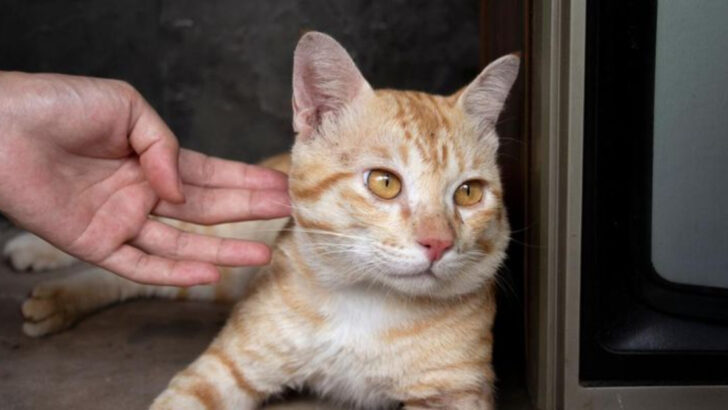Some cats don’t whisper their troubles — they scream them.
But because they’re so good at being mysterious little creatures, we often miss the signs when something’s wrong. A sudden tail flick, a weird new habit, a stare that feels a little too intense — these tiny signals can be giant red flags if you know what to look for.
Ignore them, and you could be letting a small issue snowball into a heartbreaking problem.
Cats might act tough, but behind every growl, twitch, or shadowy disappearance, there’s a story waiting to be read.
Let’s pull back the curtain and uncover the secret language of cats — before those whispers turn into roars.
Sudden Aggression
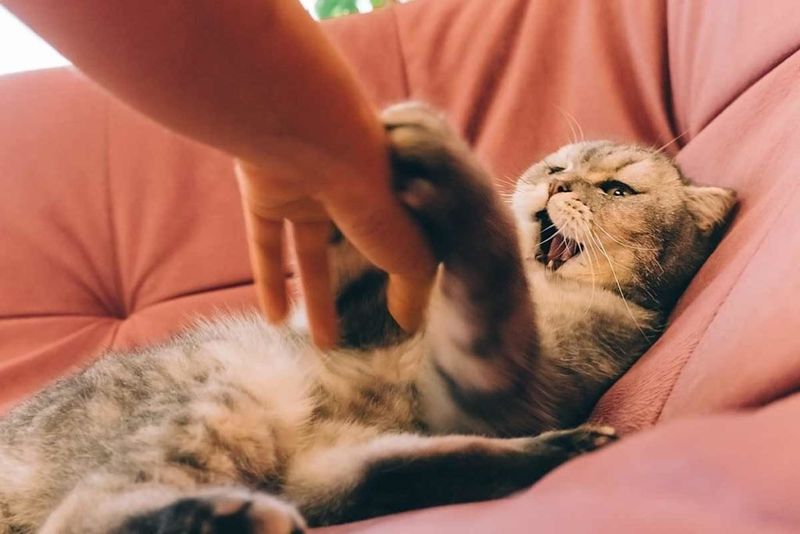
When Tigger, your usually purring lap companion, suddenly turns into a tiny ball of fury, it’s not just a bad day. Sudden aggression in cats can be alarming and should not be overlooked.
This behavior can be a sign of underlying health issues, like pain or fear. Consider whether there have been changes in the environment or other stressors.
If aggression becomes frequent, a visit to the vet is crucial. Understanding what’s behind the claws and hisses can lead to a happier, healthier kitty. Remember, Tigger’s anger might just be her way of saying, “Something’s wrong!”
Excessive Meowing
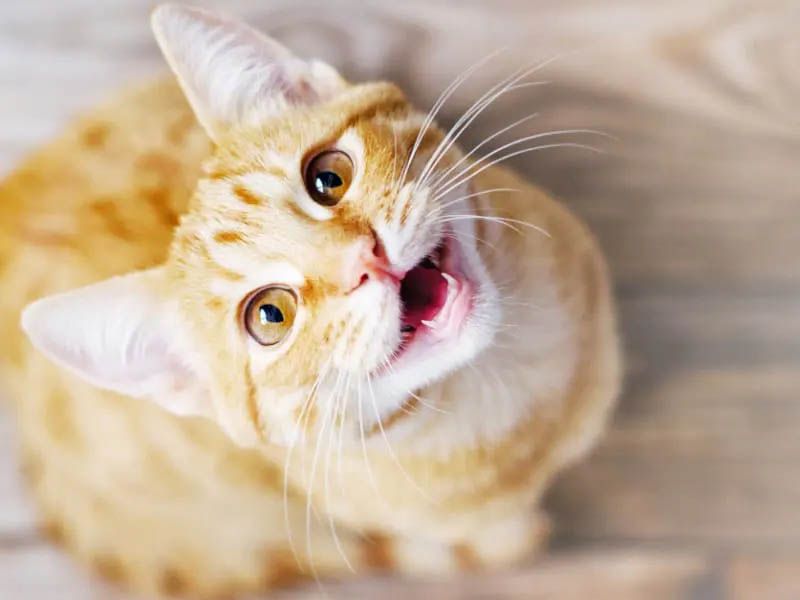
Mittens is serenading you again, but this time the concert never ends. While cats do communicate vocally, excessive meowing can be more than just a call for food or attention.
If your feline friend suddenly becomes a chatterbox, it might be seeking help. Changes in meowing patterns can signal distress or discomfort.
Older cats may suffer from hearing loss or cognitive issues, leading to increased vocalization. Pay attention to the context and frequency, and consult a vet if needed. Mittens might be trying to tell you something important!
Litter Box Avoidance
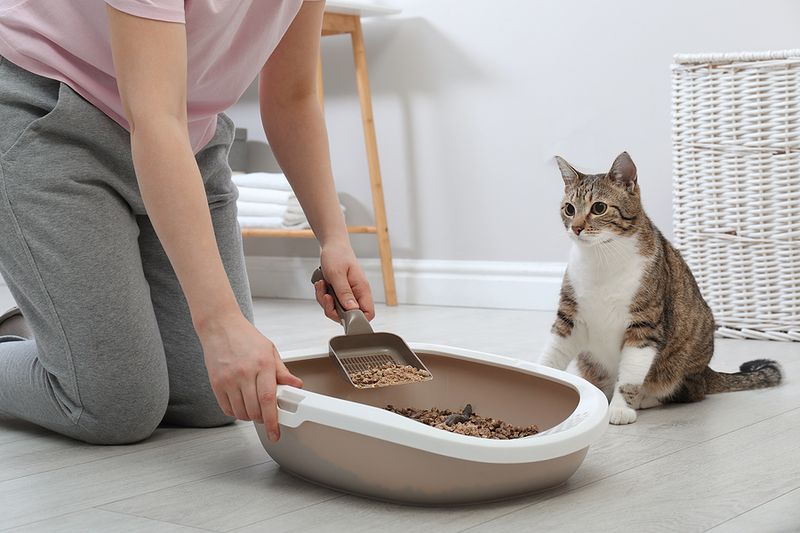
Fluffy’s disregard for her litter box can spell trouble. While cats are typically clean creatures, avoiding the litter box signals potential issues.
This behavior might indicate urinary tract infections or stress-related disorders. Check for changes in the home that could have upset your cat’s routine.
Sometimes, it’s as simple as a dirty litter box or a dislike for the location. Identifying the cause is essential to address the problem. By paying attention to Fluffy’s bathroom habits, you’re preventing potential health issues and keeping your home clean!
Hiding More Than Usual
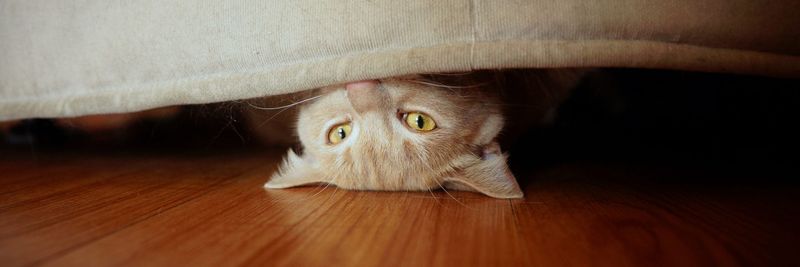
Spotting Whiskers only during breakfast? If your cat is turning into a mysterious recluse, it might be more than a game of hide and seek. Cats hide to avoid stress or discomfort.
New pets, visitors, or changes at home can trigger this behavior. However, it could also be a sign of an underlying health issue.
Monitor the duration and frequency of hiding. If Whiskers continues to be elusive, consult a veterinarian. The solution might be simpler than you think, and soon, Whiskers will be back to ruling the roost with confidence.
Changes in Appetite
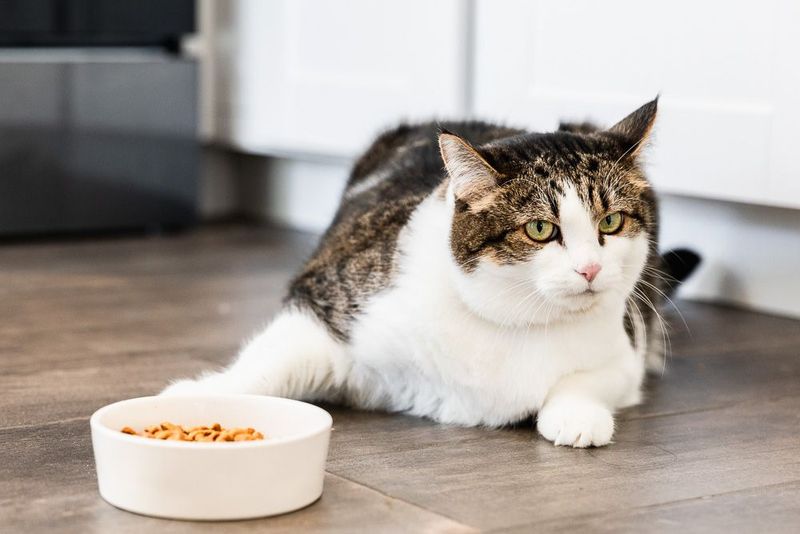
Is Garfield ignoring his beloved lasagna? Changes in appetite are often a clear sign that something’s amiss. Whether it’s eating too much or too little, both can indicate health problems.
Stress, dental issues, or digestive disorders might be affecting your cat’s appetite. Regular monitoring and understanding your cat’s feeding habits can be crucial.
If the change persists, a vet visit is essential to rule out serious conditions. By addressing Garfield’s dietary changes, you’re ensuring he remains the charming, food-loving feline you adore.
Grooming Excessively or Not At All
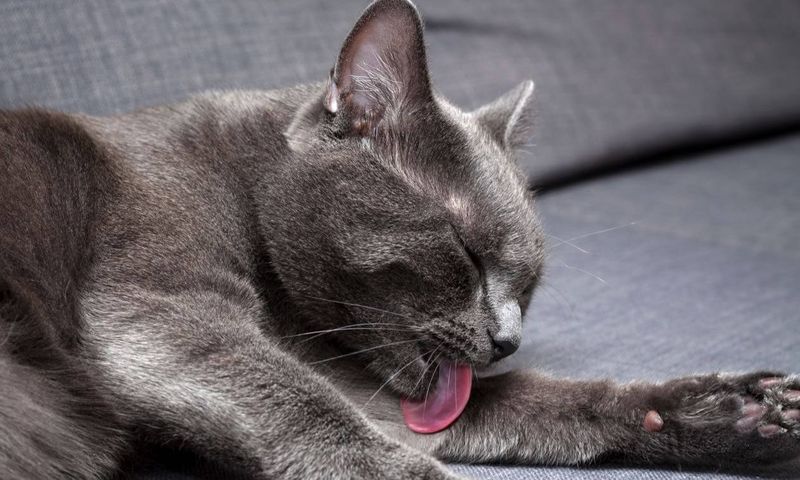
Princess’s grooming sessions have turned into marathons, or perhaps she’s lost interest altogether. Both excessive grooming and neglect point to issues beyond vanity.
Stress, allergies, or skin infections might be in play. Alternatively, a lack of grooming can be linked to arthritis or obesity, limiting mobility.
Observe for bald patches or mats in the fur. If Princess’s grooming behavior shifts dramatically, seek veterinary advice. The solution could be as simple as changing shampoos or addressing a dietary need. A well-groomed Princess is a happy one!
Changes in Sleeping Patterns
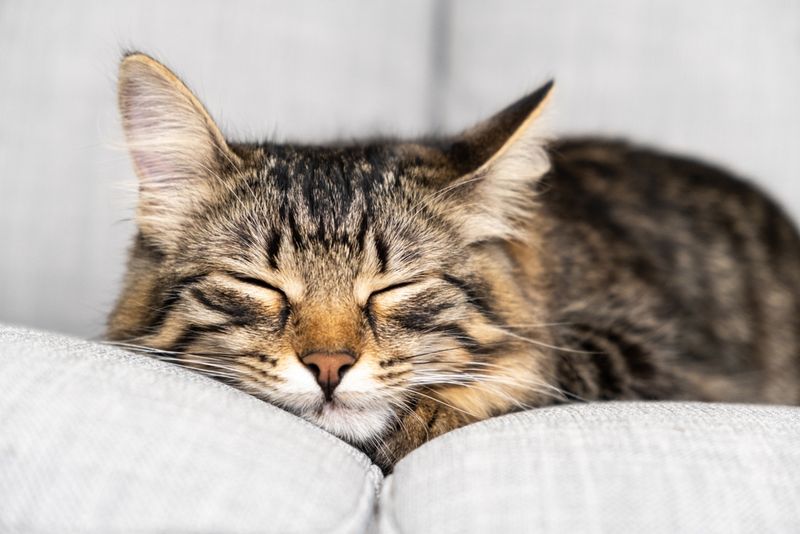
Felix used to nap in the sun, but now he’s awake at odd hours or sleeping excessively. Changes in sleeping patterns can indicate health or behavioral issues.
Cats sleep a lot, but sudden changes might mean something’s wrong. Look for signs of illness or stress causing sleep disruption.
If this continues, it’s wise to consult a vet. Understanding why Felix’s snooze schedule has shifted can prevent potential health concerns and keep him dreaming peacefully in his favorite sunny spot.
Sudden Weight Gain or Loss
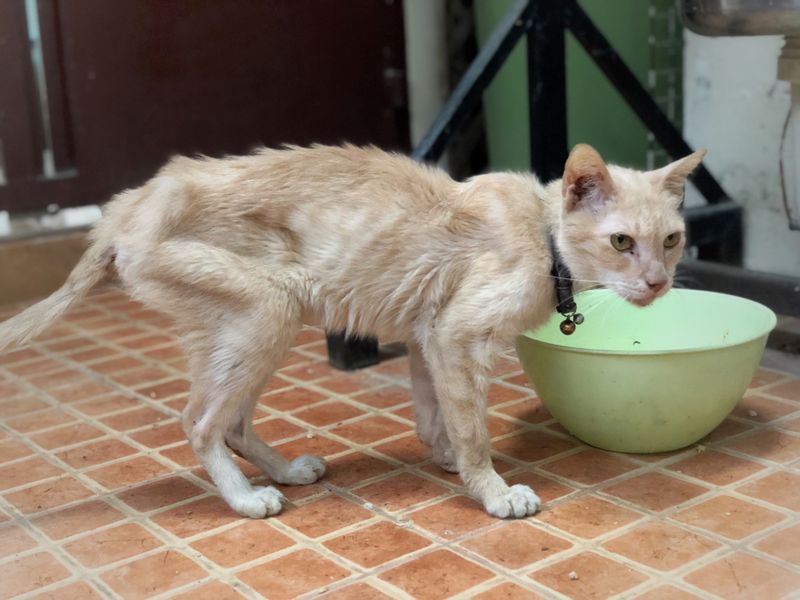
Mr. Whiskers has unexpectedly ballooned or thinned, and it’s not just his winter fluff. Sudden weight fluctuations can be concerning, revealing underlying health problems.
Hyperthyroidism or diabetes might be causing weight loss, while overeating or lack of exercise could lead to weight gain.
Monitoring Mr. Whiskers’ diet and activity can help pinpoint the issue. A vet visit is crucial if the weight change is noticeable and persistent. Keeping Mr. Whiskers fit ensures a joyful, healthy life together.
Unusual Vocalizations
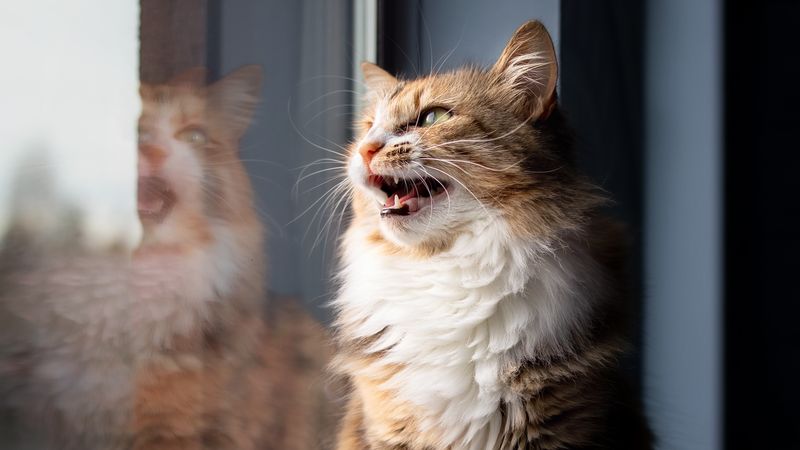
Luna’s late-night serenades have taken a bizarre turn, and it’s not just the full moon. Unusual vocalizations can signal that she needs help.
These sounds may be linked to pain, cognitive dysfunction, or even loneliness, especially in older cats.
Pay attention to the timing and triggers of these vocalizations. If Luna’s operatic nights persist, consulting a vet can offer solutions. Understanding the source of her aria ensures peaceful nights for both of you.
Avoiding Social Interaction
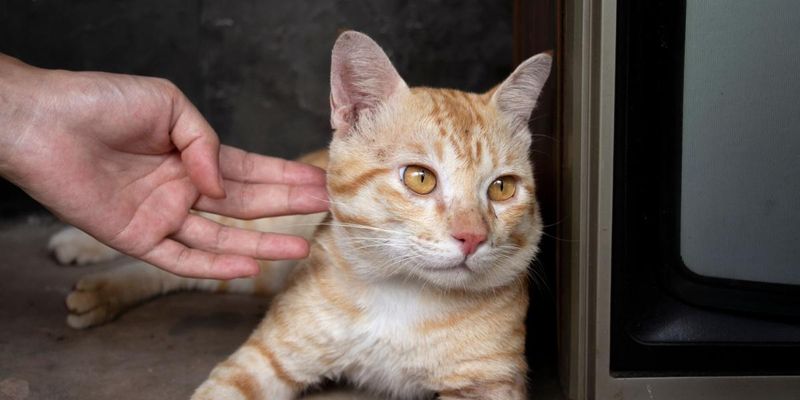
Milo, once the life of the party, now prefers solitude. Avoiding social interaction can be a red flag for health or emotional issues.
Illness, stress, or a change in the household dynamics might be causing this withdrawal.
Observing Milo’s behavior and seeking veterinary advice can help identify the root cause. Ensuring Milo feels comfortable and secure will encourage him to rejoin the family fun.
Scratching Inappropriately
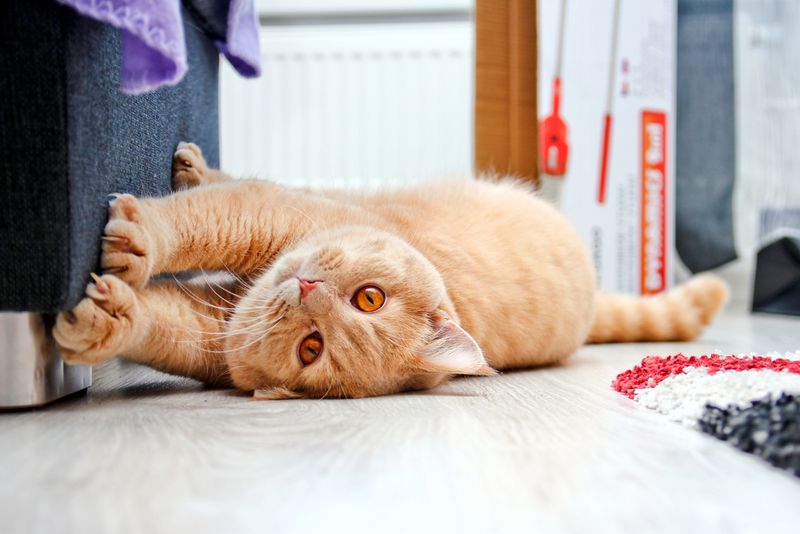
Simba’s destructive instincts have taken a liking to your new sofa. Inappropriate scratching isn’t just about sharpening claws.
This behavior can be linked to stress, territory marking, or the absence of a proper scratching post.
Providing alternatives and understanding Simba’s needs can redirect his energy. If the behavior continues, consult with a vet for further advice. Protecting your furniture while keeping Simba happy is possible!
Refusing to Drink Water
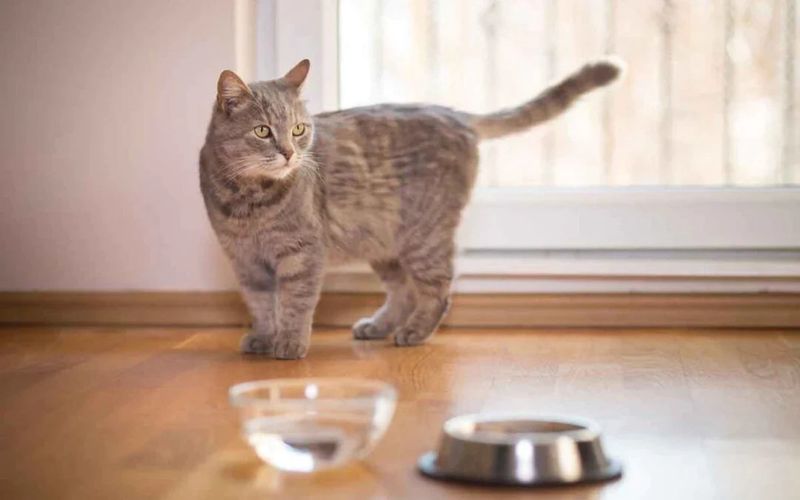
Bella’s disdain for her water bowl might seem quirky, but it could signal dehydration or a health issue. Cats need proper hydration for kidney and urinary health.
Refusing water might be linked to a dislike of the bowl’s location or cleanliness.
Experiment with different water sources like fountains or flavored water. If Bella’s hydration habits don’t improve, consult with a vet. Ensuring Bella drinks enough water keeps her playful and purring.
Panting or Breathing Difficulty
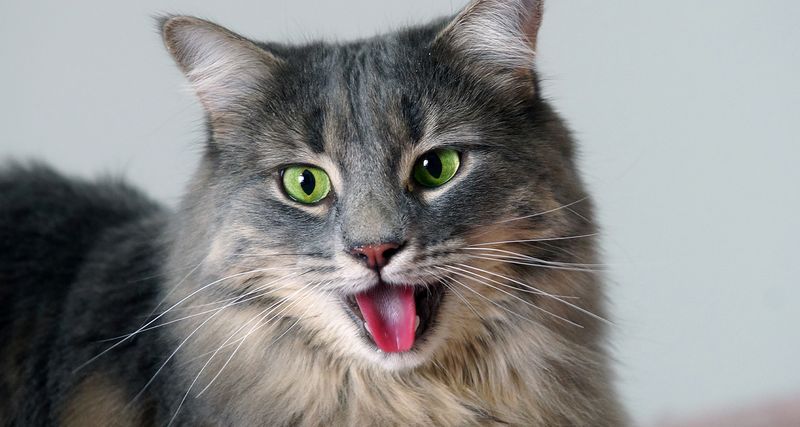
Oliver’s open-mouthed breathing isn’t just post-playtime exhaustion. Cats panting or struggling to breathe is a serious concern.
Heat, stress, or respiratory issues could be the culprits. Immediate attention is needed to prevent complications.
If Oliver’s breathing remains labored, a vet visit is crucial. Quick action ensures Oliver stays active and healthy, chasing butterflies rather than worrying you.
Excessive Vomiting
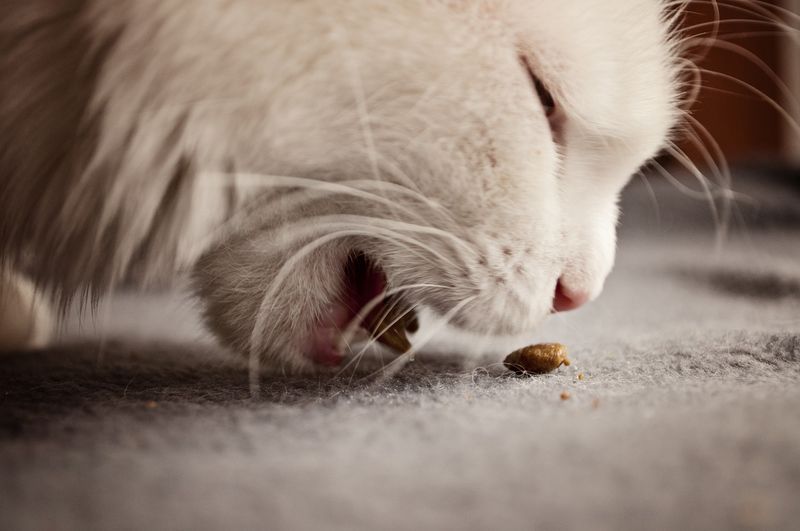
Cleo’s frequent hairball surprises could be more than just grooming mishaps. Excessive vomiting is a red flag for potential health issues.
From dietary problems to more serious conditions like kidney disease, the causes vary.
Monitoring Cleo’s diet and consulting with a vet can identify the issue. Early intervention keeps Cleo content and your carpets clean.

